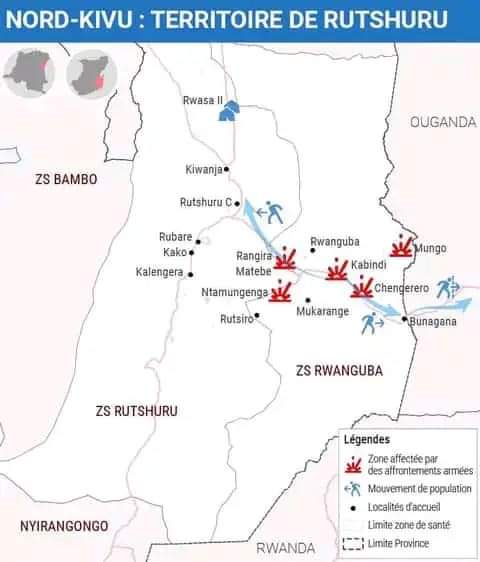The recent episode of the failure of the tripartite between Presidents Félix Tshisekedi, Paul Kagame and João Lourenço in Luanda reveals a deep diplomatic crisis with potentially harmful consequences for the Great Lakes region. The cancellation of this meeting has caused strong discontent within the provincial coordination of civil society in North Kivu, symbolized by the disappointed words of the organization’s president, John Banyenye, expressed during his intervention on Radio Okapi.
The “ill will” attributed to Rwandan President Kagame has cast a shadow over the prospects for resolving regional tensions, particularly with regard to the precarious security situation in eastern DRC. The clashes between the Congolese armed forces and the M23 rebels, supported by Rwanda, are fueling an already worrying climate of instability.
The request for direct dialogue between the DRC and the M23, a condition set by Rwanda for its participation in the tripartite, has raised an impasse that is difficult to resolve. In this context, the responsibility for protecting the population and restoring the authority of the State falls primarily to the Congolese Government. A firm position and a willingness to cooperate with international organizations seem to be the keys to overcoming this crisis.
By calling for the support of the ICGLR, SADC, the African Union, the United Nations and the EAC, John Banyenye outlines the contours of a multilateral solution that is essential to ease tensions and pave the way for constructive dialogue. International pressure and neutral mediation by these bodies could provide a framework conducive to resolving disputes and building lasting peace in the region.
In a regional context marked by complex political issues and divergent interests, the need for an inclusive and concerted approach seems obvious. Lessons from the past highlight the dangers of escalating tensions and the fragility of regional stability. It is urgent to place dialogue and cooperation at the heart of relations between the actors concerned to avoid an uncontrollable spiral of violence.
The recent episode of the failure of the Luanda Tripartite is a stark reminder of the fragility of peace and security in the Great Lakes region. Faced with this major challenge, the international community and regional actors must redouble their efforts to find sustainable and inclusive solutions, based on mutual respect and the will to build a peaceful future for all.

